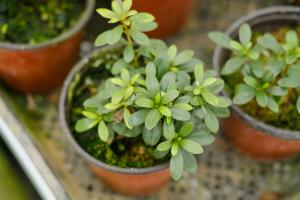When to Plant Clover in Michigan
Introduction
Clover is a popular forage crop that is widely grown in Michigan. It is known for its nitrogen-fixation capabilities and its ability to improve soil health. When it comes to planting clover, timing is crucial for optimal growth and yield. In this article, we will discuss the best time to plant clover in Michigan and the factors to consider before planting.
The Best Time to Plant Clover in Michigan
The best time to plant clover in Michigan is in late summer or early fall. The ideal planting time is between mid-August and mid-September. This allows the clover to establish itself before winter and start growing vigorously in the spring. Fall planting also ensures that the clover has enough time to fix nitrogen in the soil, which can benefit other crops in rotation.
Factors to Consider Before Planting Clover
Before planting clover, there are several factors to consider to ensure a successful crop.
Soil Type and pH
Clover does well in well-drained, fertile soils with a pH range of 6.0 to 7.0. It is important to test your soil's pH and nutrient levels before planting clover. Soil amendments may be necessary to adjust the pH and provide necessary nutrients.
Seed Bed Preparation
Clover seeds require good soil-to-seed contact for proper germination. It is important to prepare a firm seed bed by tilling and rolling the soil. The seedbed should also be free of any weeds or debris that can compete with the clover for nutrients.
Clover Variety
There are several varieties of clover that are suitable for Michigan's climate and soil. It is important to choose a variety that matches your soil type, planting goals, and forage needs. Consult with your local extension office or agronomist to choose the right clover variety for your farm.
Clover Planting Methods
There are two main methods of planting clover in Michigan. These are;
Drilling
Drilling is a popular method for planting clover seeds. Seeds are placed in the soil at a uniform depth using a drill or a planter. Drilling ensures good seed-to-soil contact, which is vital for proper seed germination and establishment.
Broadcasting
Broadcasting involves spreading seeds over the surface of the soil. This method can be done by hand or by using a broadcast seeder. Broadcasting does not provide good seed-to-soil contact, which can result in uneven germination and establishment. However, it is a cost-effective method for planting small amounts of clover.
Clover Maintenance Practices
After planting clover, it is important to maintain the crop to ensure optimal growth and yield. Some maintenance practices include;
Fertilization
Clover requires proper nutrient management to thrive. It is important to provide enough nitrogen to the clover to promote healthy growth. This can be done by applying nitrogen-rich fertilizers or using legume-based companion crops.
Weed Control
Weed control is important for preventing weed competition with the clover. Clover is sensitive to many broadleaf herbicides, so it is important to consult with your agronomist or extension personnel for the best weed control practices.
Grazing Management
If you are growing clover for forage, proper grazing management is essential. Clover should be allowed to grow at least 5-6 inches tall before grazing and should have a rest period of 30-45 days between grazing sessions.
Conclusion
In summary, planting clover in Michigan can provide significant benefits in terms of soil health and forage production. The best time to plant clover in Michigan is in late summer or early fall. Before planting, it is important to consider soil type and pH, seed bed preparation, and clover variety. Clover maintenance practices include fertilization, weed control, and proper grazing management.

 how many times do yo...
how many times do yo... how many planted tre...
how many planted tre... how many pine trees ...
how many pine trees ... how many pecan trees...
how many pecan trees... how many plants comp...
how many plants comp... how many plants can ...
how many plants can ... how many plants and ...
how many plants and ... how many pepper plan...
how many pepper plan...































